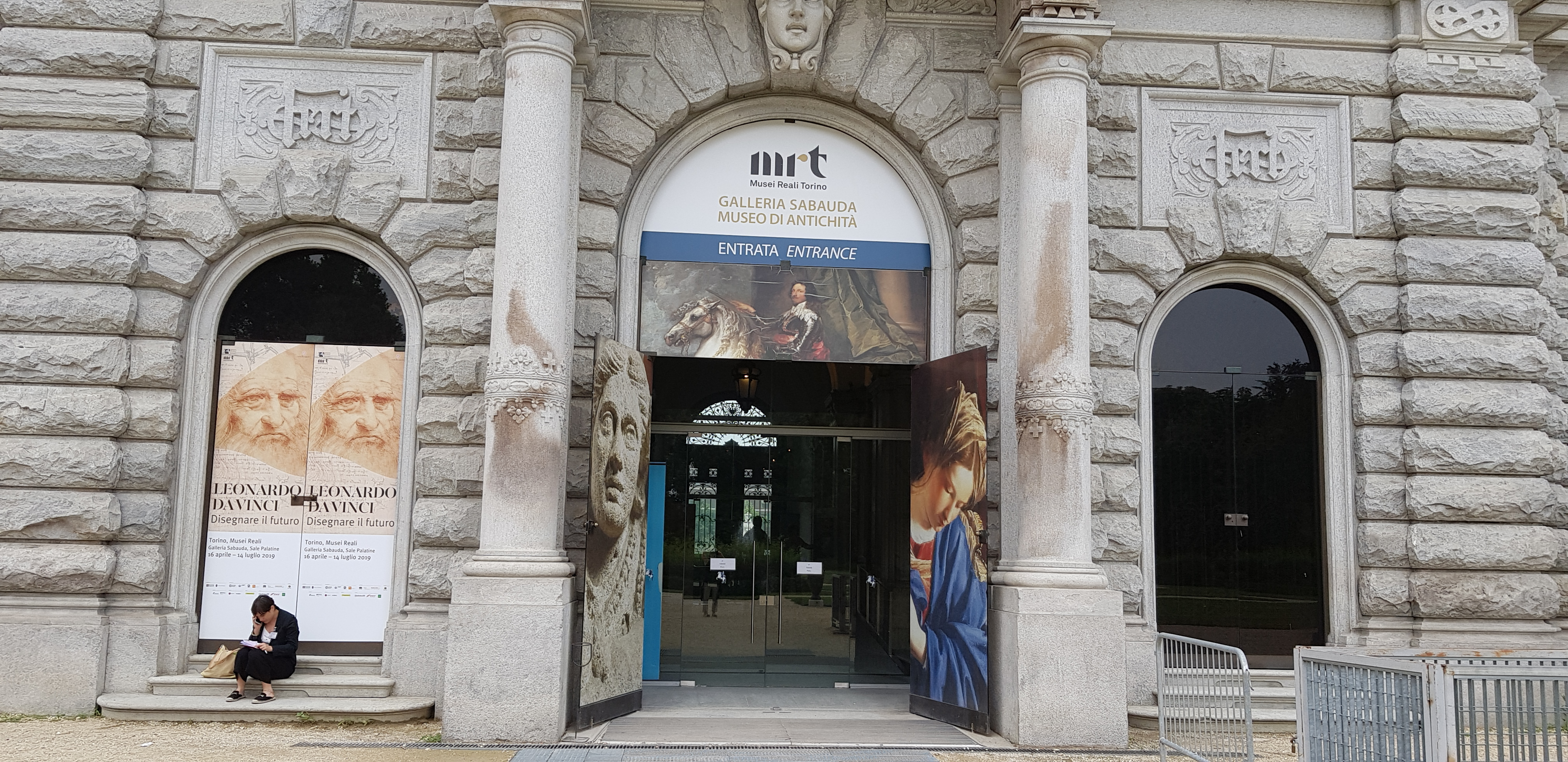
For the next few months, the Museum Reali here in Turin is sponsoring an exhibit of some of Leonardo da Vinci’s works. 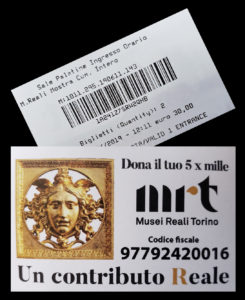 So my wife and I thought it would be a great opportunity to see the originals of his work for which up to now we have only been fortunate enough to see in books.
So my wife and I thought it would be a great opportunity to see the originals of his work for which up to now we have only been fortunate enough to see in books.
The tickets are actually purchased at the ticket office, for which there are plenty of signs to point you in the correct direction (you shouldn’t get lost.) The entrance fee is a bit high, 15€/person, but we thought it is Leonardo and his works usually do not disappoint. So we purchased our tickets and headed to the museum.
One word of caution, though it is advertised that there are some fifty plus works in the collection, they are not all produced by Leonardo. Some are only attributed to him through his working with colleagues and apprentices. So one must pay attention to the note cards for each piece or, if you have paid for it, the audio headset (we no longer get these since we have always found them not to work very well.)
Dioramas and Models
The collection boasts of a few models and dioramas which the visitor can enjoy. Though not directly built by Leonardo, they are from designs that he had put forth in his many notebooks and journals.

Anatomical Studies and Drawings
Most the of original Leonardo works have to do with his studies of human and animal forms. He was particularly adept at musculature and studies of the face.
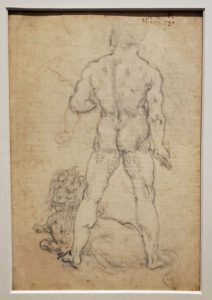
According to the museum, the above drawing was probably an initial sketch for a proposed statue that never was made. It was apparently destined to stand next to his statue of David in Florence once it was completed.
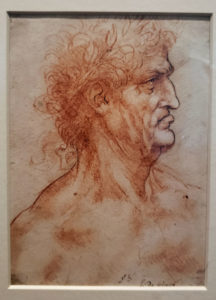
There are several sketches and drawings of the human head. Some, like the above, just to capture the heroic nature of some of his models. Others for more exact studies into the human proportions of the face and all of its parts.
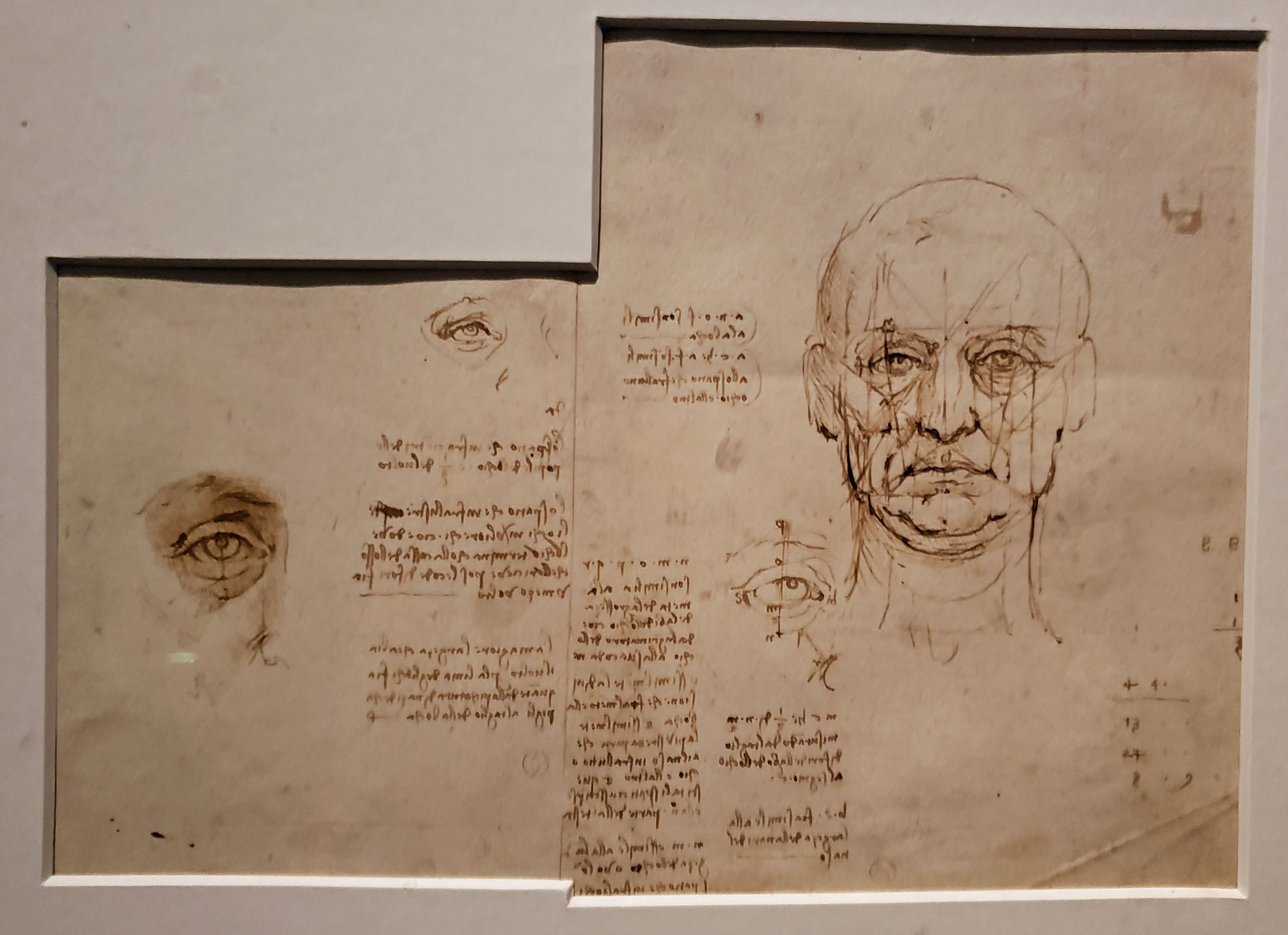
The one on the left above was a study in the proportions of the eye. This was subsequently glued onto another sheet to join it to his study of the proportions of the overall face. Both show Leonardo‘s interest in the mathematical proportions of his subjects and how they were involved with one’s ability to see, providing us evidence of his overall curiosity of the human condition.
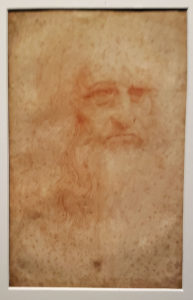
The portrait to the left is described by the museum as being a self-portrait of the master himself. Though an obviously brilliant work with its economy of lines, etc., it does evoke a sense of wonder as to whether he could have achieved such details from himself, given the deplorable state of mirror technology at that time. It is also very possible that it is either his idealistic image of himself or perhaps more likely of a philosopher of old. In either case it has become our accepted representation of the master who has earned the right to be so represented by his enormous collection of works and detailed analysis of everything he had undertaken.
Poetry and Literary Works
Though actually not known for it, Leonardo did some writing. The museum has several examples of his poetry on display.
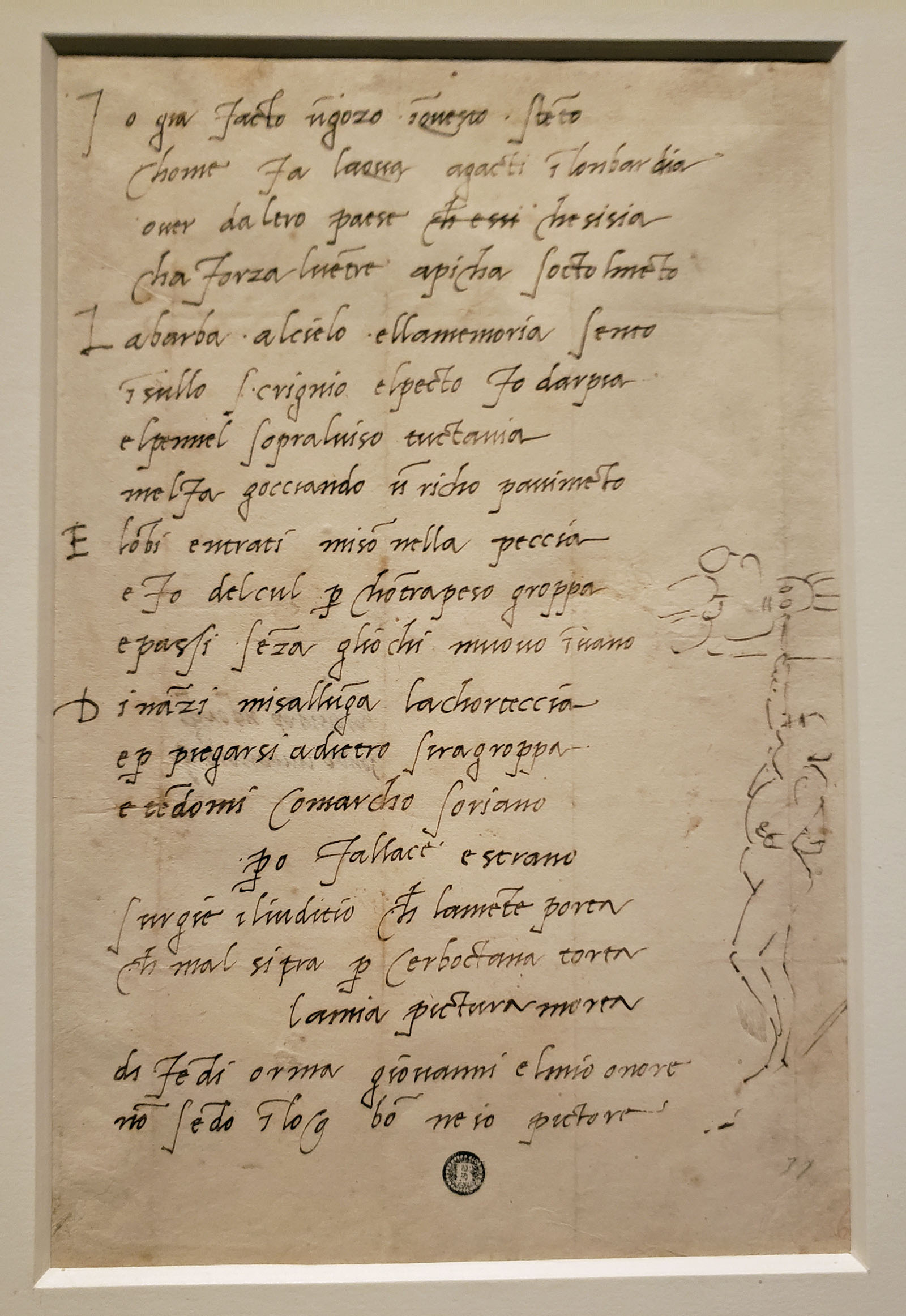
The most notable of which is the self-portrait above. The sonnet describes Leonardo‘s “Beard in the Sky” position while painting the Sistine Chapel.
Flight and More Familiar Works
Mechanics seemed to have been one of Leonardo‘s passions. Most of use are somewhat acquainted with his works on the subjects. Even the Wright Brothers read his works on the subjects as an introduction to flight mechanics.
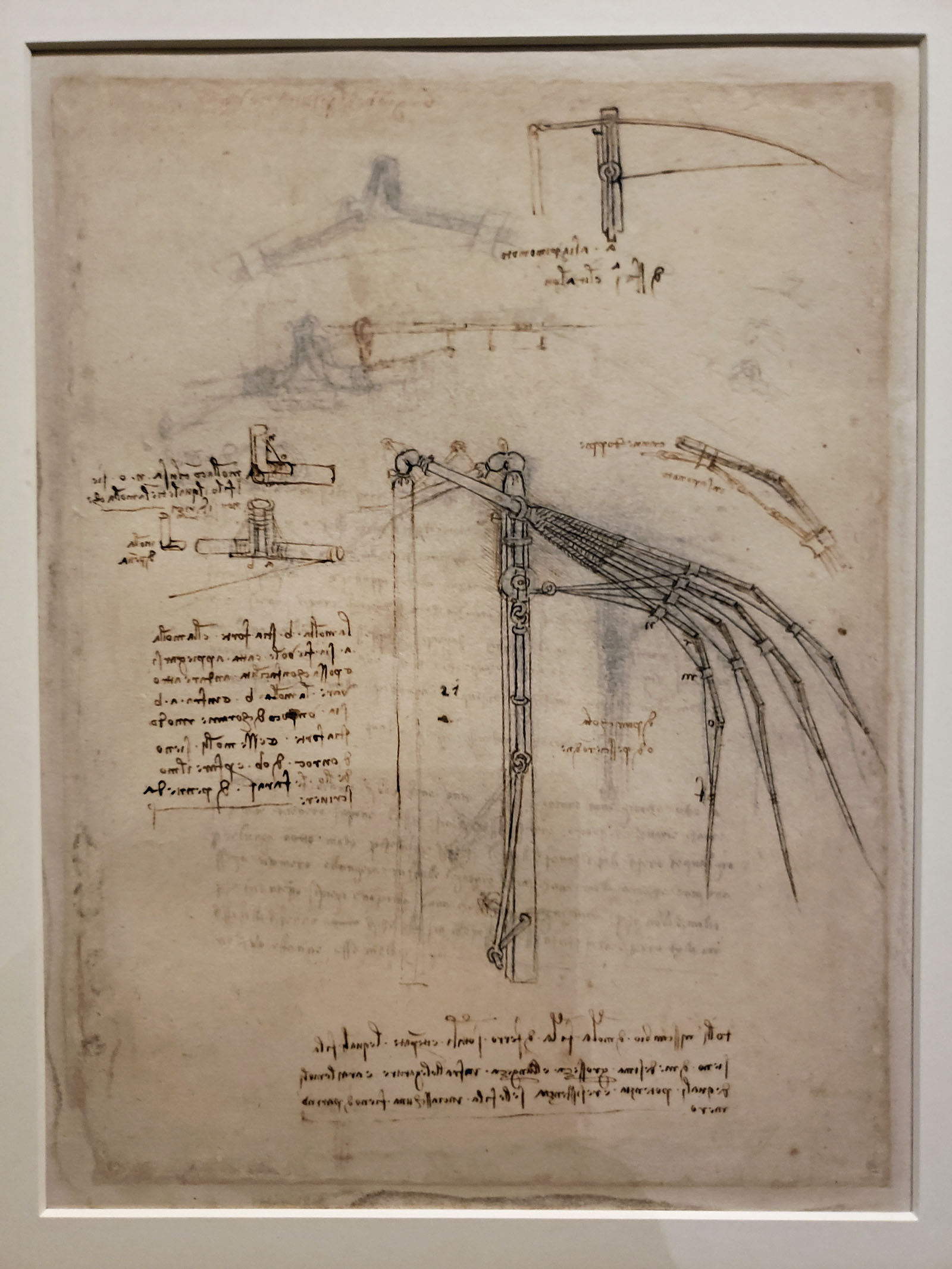
In the above codex Leonardo explored the mechanics and structure of the bird wing. He was very interested in how this could be expressed mechanically with the use of wood and rope. The above design is also articulated in a model which hangs very near the above sketch.
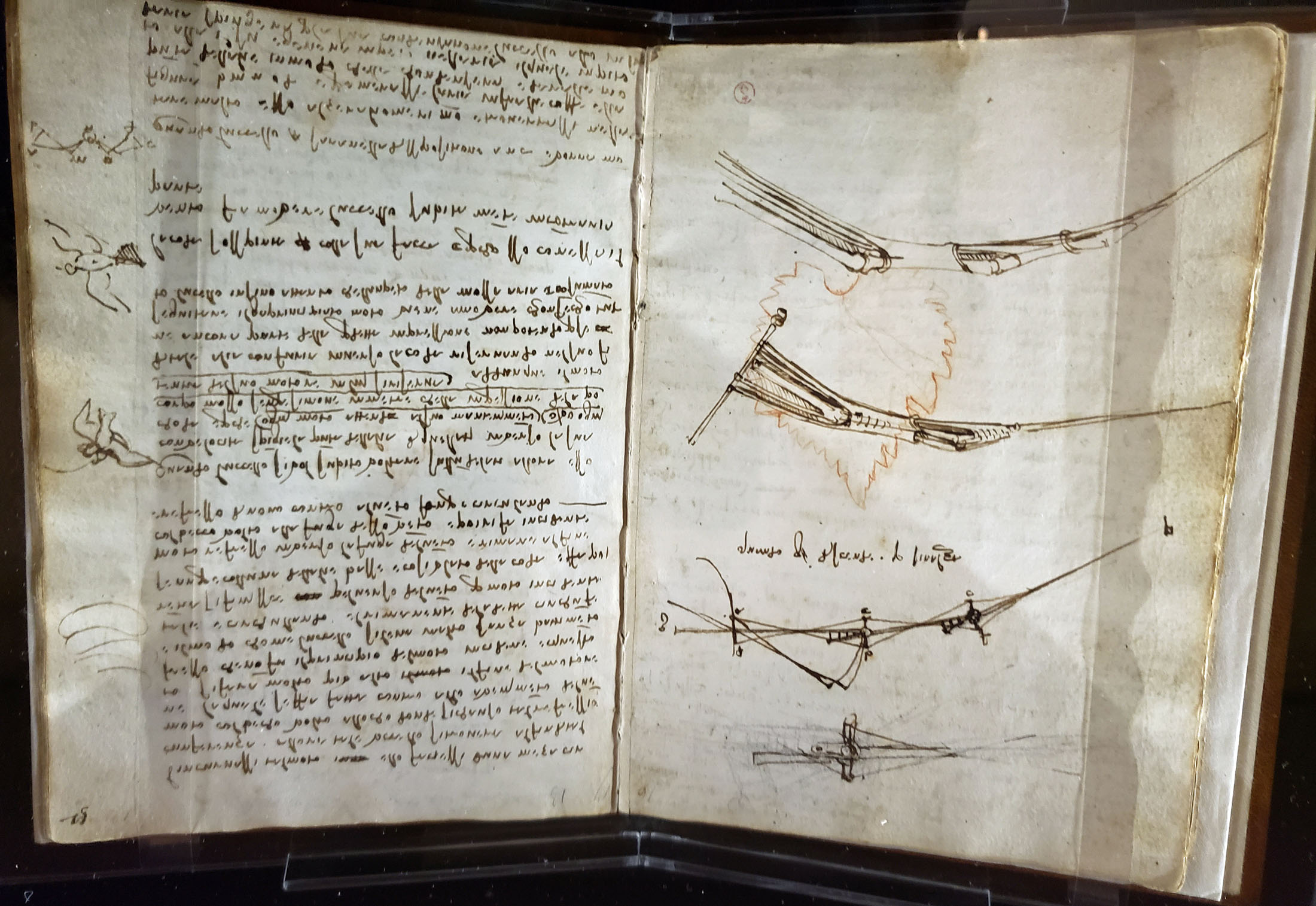
Finally his Codex on the Flight of Birds goes into great detail. There are some eighteen or so pages of documentation around this subject for which he had hope to pull together into a book on the subject, but never completed it.
Conclusion
An excellent primer on Leonardo‘s studies, as well as his excellent ability for detailing with pen and ink. There is also a short video on how the writing instruments and inks were developed in that time period which we found very informative.
Though a bit expensive, if you are at all curious and can afford it we think it worth the time and expense.
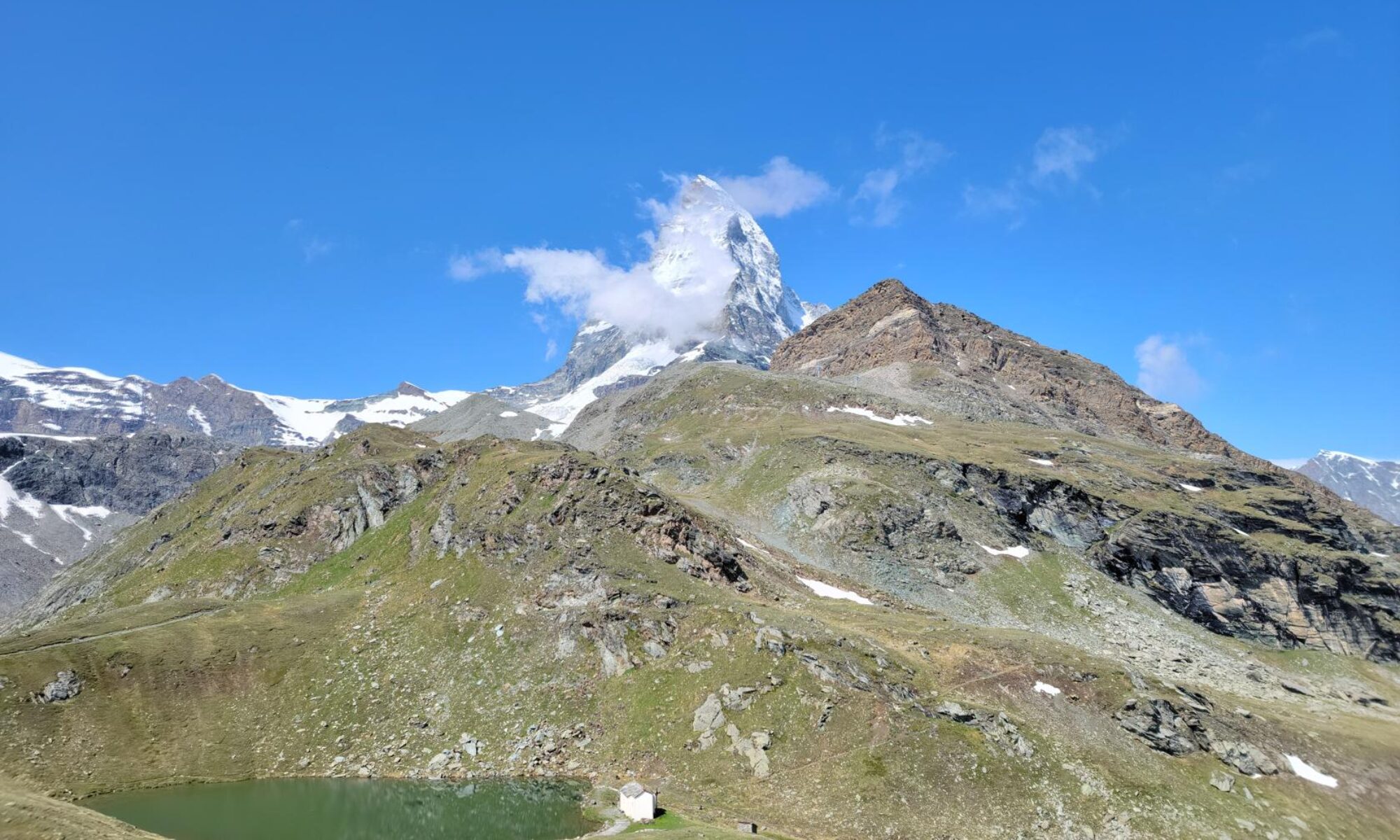
So much information and so interesting!!!